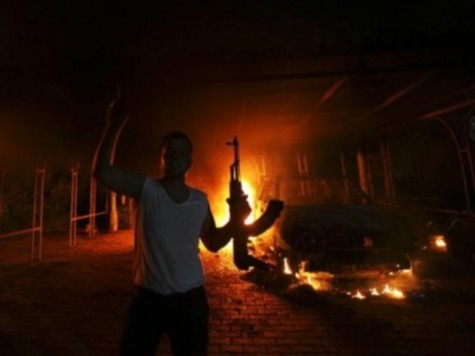Today, Reps. Issa and Chaffetz sent a letter to Secretary of State Hillary Clinton asking why requests for more protection at the Benghazi embassy were denied. Rep. Issa is the Chairman of the House Oversight Committee and Rep. Chaffetz is the Chairman of the subcommittee on National Security, Homeland Defense and Foreign Operations. The full committee will hold a hearing on October 10, 2012 to assess the security situation preceding the terrorist attack of September 11.
“Based on information provided to the Committee by individuals with direct knowledge of events in Libya, the attack that claimed the ambassador’s life was the latest in a long line of attacks on Western diplomats and officials in Libya in the months leading up to September 11, 2012. It was clearly never, as Administration officials once insisted, the result of a popular protest,” the committee’s chairman, Rep. Darrell Issa, R-Calif., and subcommittee chairman, Rep. Jason Chaffetz, R-Utah, write. “In addition, multiple U.S. federal government officials have confirmed to the Committee that, prior to the September 11 attack, the U.S. mission in Libya made repeated requests for increased security in Benghazi. The mission in Libya, however, was denied these resources by officials in Washington.”
The letter includes a long list of security concerns that occurred in Libya in the six months preceding the murder of Ambassador Stevens. Of particular concern is an attempt on the life of the British Ambassador that took place on June 10.
June 10, 2012, BENGHAZI – On or about June 10, 2012, a two-car convoy carrying the British Ambassador to Libya from a conference on reforming Libyan military law was attacked in broad daylight by a militant with an RPG. This attack was an important escalation in the violence against Western targets in Benghazi, as prior attacks had been at night and were often preceded by warnings from the attackers. Photos from the aftermath of the attack are attached.
The committee has asked the state department to make the appropriate officials available for the hearing along with answers to the following questions:
1. Was State Department headquarters in Washington aware of all of the above incidents? If not, why not?
2. If so, what measures did the State Department take to match the level of security provided to the U.S. Mission in Libya to the level of threat?
3. Please detail any requests made by Embassy Tripoli to State Department headquarters for additional security, whether in general or in light of specific attacks mentioned above. How did the Department respond to each of those requests?
A copy of the letter can be found here.

COMMENTS
Please let us know if you're having issues with commenting.